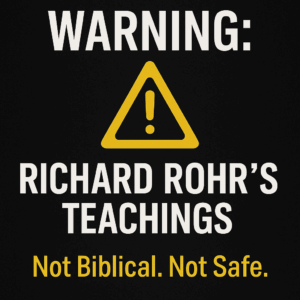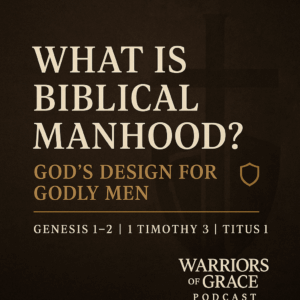⏱️ Estimated Reading Time: 4 min read
1. The Problems of Doubt
Instinctively, we are accustomed to the concept of doubt. Living after the Fall, doubts are the struggles Christians have to believe, or trust, the promises of God in Christ. Doubt is uncertainty – or a struggle to believe – in the heart of the believer. Matthew reports that some of the first followers of Jesus Christ had doubts on the Galilean mountain of the great commission (edistazan, Matthew 28:17). It seems best to understand these doubts not as rejection of the Lord Jesus Christ, in disobedient unbelief, but rather as a hesitancy to respond to the risen Messiah with joyful worship (Carson, 1995, 594).
We will narrow the scope of this paper by distinguishing two possible causes of such uncertainty, namely ‘doubt’ and ‘lack of assurance’.
The latter is a Christian’s struggle to believe that salvation applies to them personally. Despite responding rightly to the gospel command in repentance and faith, the believer still lacks subjective assurance that the gospel promises of justification, reconciliation and adoption are effective for them as an individual. The poem Cowper’s Grave by Elizabeth Barrett Browning describes how the gifted poet and hymn-writer William Cowper endured this kind of fear himself. Indeed, France notes that such subjective assurance fears – fears concerning one’s own personal acceptance by God – may well have been what held those early followers back in Matthew 28:17 (France, 2007, 1112). When we encounter such struggles, we must respond with compassionate, sensitive bible teaching to reassure the sincere disciple of the promises of God.
However, in this paper we are primarily concerned with the former issue – doubts that arise from uncertainty about the objective truth of the gospel.
Such uncertainty is most likely to be connected in the believer with a tendency to drift into the prevailing non-Christian worldview around them. For a 21st Century British Christian, therefore, doubts may well be heavily influenced by the strong rhetoric and aggressive style of new Atheists such as Dawkins, Harris and Hitchens. Doubts of this kind undermine the joy of the Christian in their salvation, as they fear it may be untrue. Doubts undermine the whole-hearted service of a disciple, as the doubting Christian begins to ‘hedge their bets’, holding back from the radical, rewarding sacrifices the Lord Jesus Christ calls us to make because of lurking concerns that their hope is unfounded and this fleeing earthly life is all that there is. One wonders, therefore, if doubt is in fact far more common than is ever admitted, and underlies many other pastoral problems, because one of the results of doubt is often disobedient behaviour. The will of God is ignored because it is not believed.
Worse still, doubt can cause a professing believer to fall away altogether. The triple-jumper Jonathan Edwards, who professed faith throughout his athletics career, made the following tragic and extraordinary statement in an interview with David Powell in The Times in June 2007: ‘Once you start asking yourself questions like, ‘How do I really know there is a God?’, you are already on the path to unbelief. … When you think about it rationally, it does seem incredibly improbable that there is a God.’ We submit that this statement demonstrates a misunderstanding of what it means to ‘think rationally’ that is heavily influenced by the Atheism and secularism that pervades late-modern Britain.
Before we investigate further the biblical material on faith and doubt, one more distinction must be made if we are to minister faithfully to Christians with doubt. The bible holds together a tension between (i) assurance of God’s sovereignty, and that He preserves all believers; and (ii) warnings that the believer is responsible, and must not fall away. In ministering to Christians with doubt, one must prayerfully seek wisdom about how this tension is to be applied. A Christian may seek help from us with a presenting issue of doubt in a situation where they would be most helped not by hearing the warnings against falling away, but rather by the being reassured with the comforting promise that God finishes what He starts, from passages such as Philippians 1:6 and 1 Peter 1:1-2. All ministry of this kind must be sensitively person-specific.


